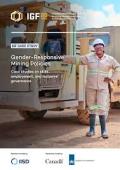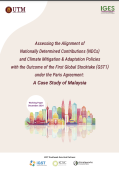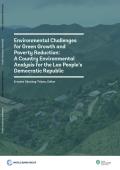This paper uses the cases of Chad and Mauritania to illustrate how the System of Environmental-Economic Accounting (SEEA) and net saving can be used to diagnose policy failure and improve economic performance.
Early concern by economists about the effect of natural capital on economic growth gave way to complacency and neglect during the nineteenth century. However, evidence has emerged that, since the 1960s, the economic performance of low-income countries has been inversely related to their natural resource wealth. This relationship is not a deterministic one so policy counts. SEEA can help improve the policy and performance of resource-abundant, low-income countries by reinforcing the rationale for the sound management of natural resources and also by providing an index of policy sustainability in the form of the net saving rate. This policy index, along with other measures (e.g. a capital fund for sterilizing the rent, initiatives to increase the transparency of rent flows, and the rigorous evaluation of alternative uses of additional public sector revenue) can improve the efficiency by which natural resource rent is transformed into alternative forms of capital to sustain rising social welfare.




